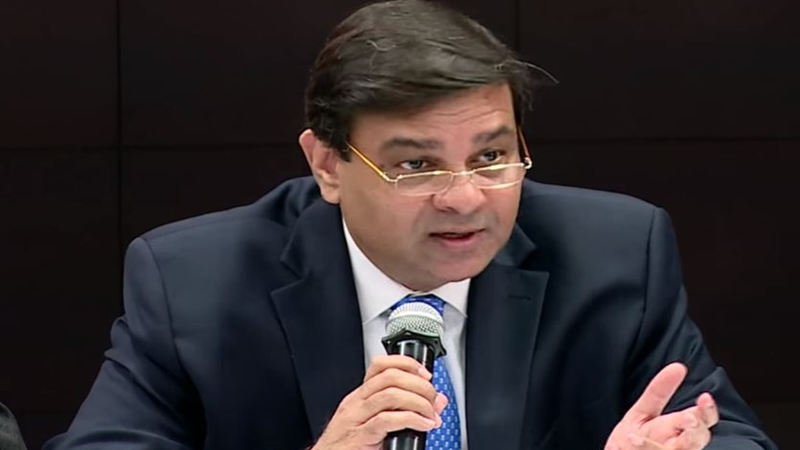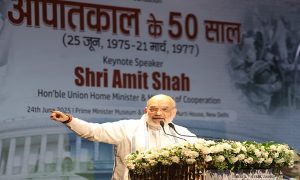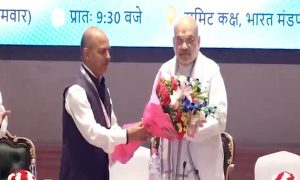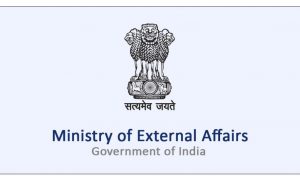New Delhi: A key appointee of the Modi government – RBI governor Urjit Patel – was in the news on Wednesday for all the wrong reasons. The buzz was that he had either submitted his resignation, or is likely to do so in the near future. There were reports of damage control by the government, which put out a reconciliatory statement, but it was unclear whether the festering row has blown over or not.
At the heart of this speculation was Section 7 of the RBI Act, which empowers the government to issue directions to the Reserve Bank in “public interest” and ride roughshod over the institution. An extreme step, it has never been invoked in the history of the central bank.
Even more important, Section 7 (2) gives the government powers to side line the Governor and entrust the running of the RBI to its Central Board, which has government nominees as independent directors. Once the section is invoked, the board exercises all powers that are otherwise exercised by the bank. Sources said the Finance Ministry wrote three separate letters in the past few weeks to the RBI on issues ranging from Prompt Corrective Action framework to liquidity management and sought consultation under Section 7 of the RBI Act.
This was unprecedented and possibly led to the uncharacteristic outburst of Deputy Governor, Viral Acharya, during a speech in a public fora, wherein he said that attempts to undermine the authority of the central bank could have ‘‘catastrophic consequences.’’ Urjit was present in the audience during the speech and Acharya made it a point to thank the Governor for his input. The loaded message to the government in Acharya’s hard-hitting speech was that the RBI top brass had closed ranks and was talking in one voice in a bid to stall any attempt by the government to usurp its powers as a regulator.
Differences between the government and the RBI cropped up over various issues, including the central bank’s handling of weak public sector banks under the PCA framework and ways to resolve bad loans in the power sector. There are also apparent differences between them over tight liquidity and setting up of an independent payments regulator. However, government sources are adamant that no action has been taken to issue any specific direction under Section 7 and only consultations have been initiated with the central bank on unresolved issues.
To stem the speculation about Urjit’s exit – with punters having a field day accepting bets – the finance ministry felt obliged to put out a statement saying that such consultations with the RBI took place from time to time as both sides “have to be guided by public interest and the requirements of the Indian economy.” In an attempt to tackle criticism that it is overreaching, the government tweaked its note by also saying that autonomy for the RBI, “within the framework of the RBI Act, is an essential and accepted governance requirement.”
But the mood in North Block was quite different on Tuesday when the RBI governor and Finance Minister Arun Jaitley had their first interface after Acharya’s speech. In what was perceived as a retort, Jaitley was quoted as saying that the RBI “was looking the other way” while banks were lending indiscriminately. The RBI and the Finance Ministry have a love-hate relationship. The government’s letters to the RBI under Section 7 are the latest in the simmering dispute over autonomy. Urjit Patel has been pushing for more powers to clean up a banking system saddled with bad debts.
The RBI has put lending curbs on some weak state-run banks, while the government, facing the 2019 national election, wants to ensure banks continue to lend to boost economic growth. Former Finance Minister Yashwant Sinha told India Today TV that if RBI governor has any self-respect, then he should resign. He also said that Finance Minister Arun Jaitley has ruined the economy and the institution.
Calling it a direct attack on the autonomy of the RBI, Sinha said, “I would only say that this [invoking Section 7] is unprecedented. It has never happened in the history of independent India or ever since RBI was established. Clearly, the RBI might have one view of how it should tackle the crisis in the economy while the finance ministry may have another view.”
FM tweaks its stand
To spike the buzz about Urjit’s exit – with punters having a field day accepting bets – the finance ministry felt obliged to put out a statement saying that such consultations with the RBI took place from time to time as both sides “have to be guided by public interest and the requirements of the Indian economy.” In an attempt to tackle criticism that it is overreaching, the government tweaked its note by also saying that autonomy for the RBI, “within the framework of the RBI Act, is an essential and accepted governance requirement.”
Work in sync or quit: RSS wing
The RBI Governor should work in sync with the government or otherwise he can resign, the RSS-affiliated Swadeshi Jagran Manch said on Wednesday. The comments come against the backdrop of escalating tension between the government and the RBI over various issues. The SJM also said that Deputy Governors as well as RBI office bearers should restrain from speaking in the public about any disagreements with the government. On the prickly issue of autonomy, the SJM said the entire talk of central bank’s independence is a western concept. It is not acceptable and feasible in India.
Resign if you have any self-respect
Former Finance Minister Yashwant Sinha told a TV channel that if RBI governor has any self-respect, then he should resign. He also said that Finance Minister Arun Jaitley has ruined the economy and the institution. Calling it a direct attack on the autonomy of the RBI, Sinha said, “I would only say that this [invoking Section 7] is unprecedented. It has never happened in the history of independent India or ever since RBI was established. Clearly, the RBI might have one view of how it should tackle the crisis in the economy while the finance ministry may have another view.”


























 WhatsApp us
WhatsApp us